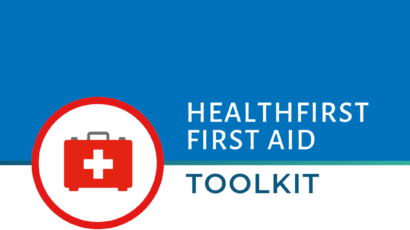They can appear suddenly at 3am, or maybe gradually in the middle of the supermarket, or perhaps just as you are rushing out the door to get to school on time.
So what can cause a tummy ache in a child?
Think about what organs are in the tummy. The tummy ache might be coming from the stomach and intestines – think gastroenteritis or a blockage or twisting in the intestines – look for vomiting and/or diarrhoea. Call a doctor immediately if there is blood there.
It might be coming from the large intestine – think constipation – it’s commoner than you might think in children and may present, surprisingly, with diarrhoea as the bowel tries to cope with the blockage. The appendix is a little-finger shaped bit of the large bowel that can get blocked with a pellet of poo and become inflamed. This is appendicitis and is a serious condition that must be seen by a doctor as soon as possible. It often begins with a central tummy pain (around the naval area), usually in a poorly child who doesn’t want to eat or play and may have a fever. They may also feel nauseous, vomit or have diarrhoea. Often the pain moves over a couple of hours and settles in the bottom right hand corner of the tummy – take this child to hospital!
The bladder is an organ in the tummy too, don’t forget, and a urine infection often gives a lower tummy pain. Other signs and symptoms include fever, loss of appetite, vomiting and smelly wee that might be pinkish, cloudy or red. Children may or may not complain of burning or pain when they pass urine but may be going to the toilet more often. They may start wetting the bed after having been dry at night for some time.
A hernia, where a bit of bowel gets stuck in the abdominal wall or in the scrotum, is a medical emergency. So think to check a child’s groin and, for a boy, testicles, for lumps, bumps and tenderness if you have an unwell little one with tummy pain.
Other physical illnesses may cause pain in the tummy Just because the pain may be felt in the tummy, doesn’t mean that the pain is coming from the tummy! The pain signals can get ‘crossed’ in the brain. Thus conditions like pneumonia, coughs and colds can present with tummy pain. Even other serious conditions like diabetes and glaucoma can have abdominal pain as one of their symptoms.
Anxiety and fears are often felt as tummy pain Just as we adults may get a tension headache or backache, children often ‘feel’ their anxiety, stress, worries in their tummy. If the pain is coming everyday just before school begins, for example, or when you are putting them to sleep – think about asking yourself ‘what else might be going on here?’ Children aren’t usually able to verbalise their psychological stresses so their bodies ‘talk’ for them. We need to listen carefully for these whispers.
When is it serious?
Tummy pain may be mild and transient, or it may be an important symptom of a serious illness. I hope the following questions will help you decide whether you can treat it with a cuddle, a listening ear and a warm water bottle – or whether a doctor or ambulance is required.
1. Do they have a fever above 38.5 ?C, taken with a digital ear or rectal thermometer?
2. Have they had continuous abdominal pain for 3 hours? Or pain on and off for 6 hours?
3. Do they have pain or swelling in their groin or testicles?
4. Do they have green-yellow vomit?
5. Is there blood in their poo?
6. Are they dehydrated or floppy/listless?
7. Are they pale or do they have a rash?
8. Is their breathing fast?
9. Have they stopped eating (and/or drinking) and aren’t playing normally?
10. As their parent/carer, are you worried? Is your ‘sixth sense’ telling you something is not right with your child?





